Tunisian police violently break up protest against anti-LGBT law
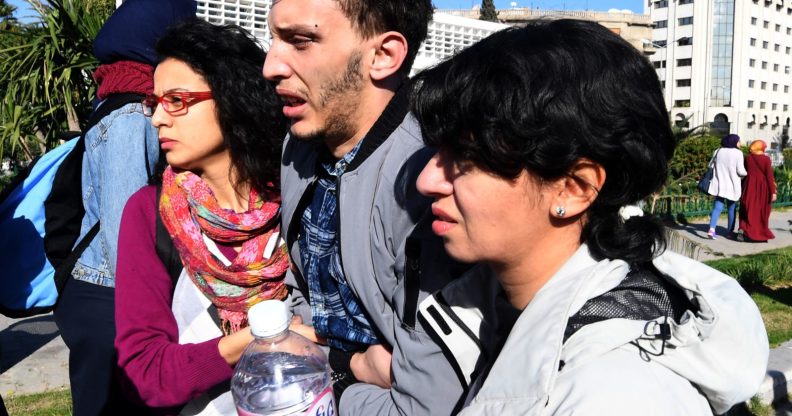
(Getty)
Police in Tunisia have disrupted a protest around the country’s anti-LGBT laws.
Demonstrators said police officers arrived in plain clothing to break up the demonstration and some said they experienced violence as they were removed from the scene.
The protest, outside the tourism ministry, had been banned by the interior ministry.
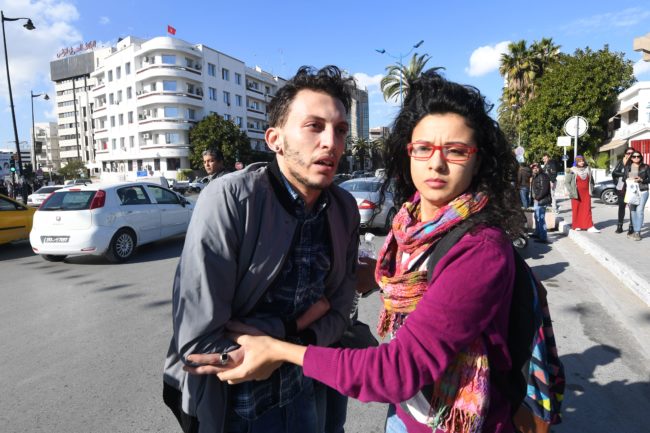
(Getty)
Organisers said they were told that the demonstration could not go ahead “for their own safety”.
It had been called to protest “the criminalisation of sexual freedom and discrimination against women”, and Tunisia’s “retrograde” laws.
A spokesperson for the interior ministry, Khalifa Chibani, told Arab News: “We had information that they were going to be targeted.
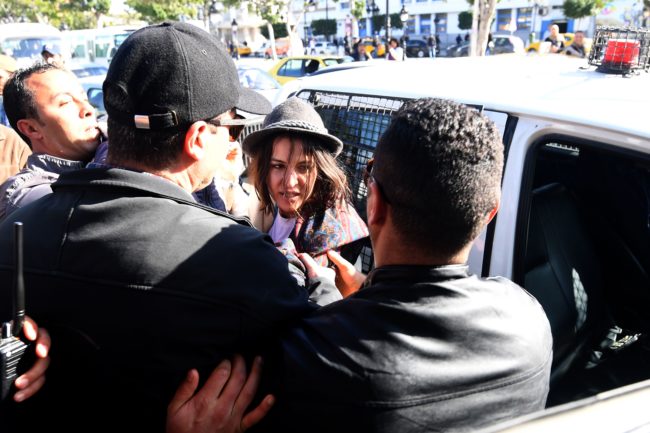
(Getty)
He added that demonstrators were banned from protesting “for their safety and to preserve public order”.
The protest went ahead anyway after being organised by the Association of Free Thinkers

(Getty)
and supported by other groups which advocate for the decriminalisation of homosexuality in the country.
The LGBT group Association Shams also had demonstrators present when the protest was broken up.
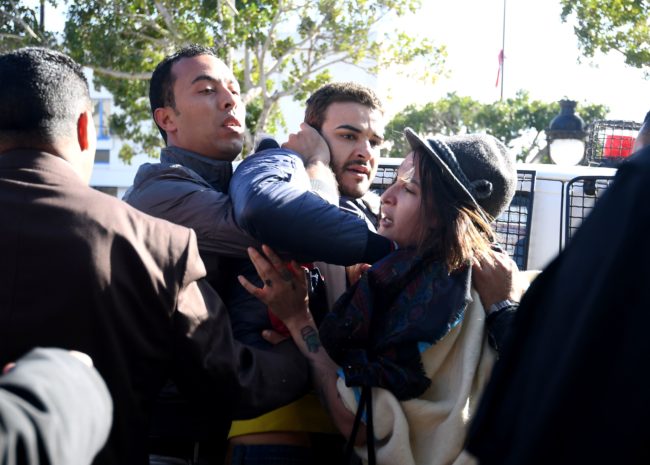
(Getty)
Twelve people turned up to protest, and according to reports carried placards which called for decriminalisation as well as a secular state.
But they were interrupted by the police officers in plain clothes arrived at the moment a rainbow flag was unfurled.
One activist, Amina Sboui said she had tried to display the Pride flag but that she and another protester were taken by the officers and put in a police car.
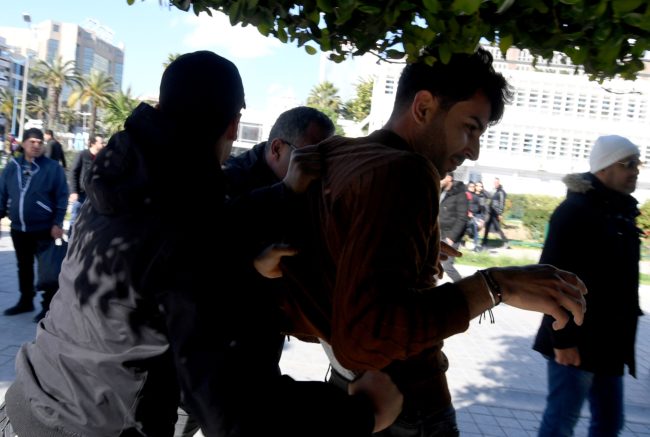
(Getty)
Another protester, Bouhdid Belhadi, said he had his arm twisted by a police officer when he was being removed from the scene.
Gay sex is illegal in Tunisia for both women and men and gay and bisexual men have historically been subjected to invasive anal testing if accused of same-sex activity.
Tunisia’s Human Rights Minister back in 2017 announced that the country will no longer perform anal exams on bisexual and gay men without their consent.
The practice, which is considered to be torture by Amnesty International, is to be scrapped by the country, which is used to punish men for homosexual practice.
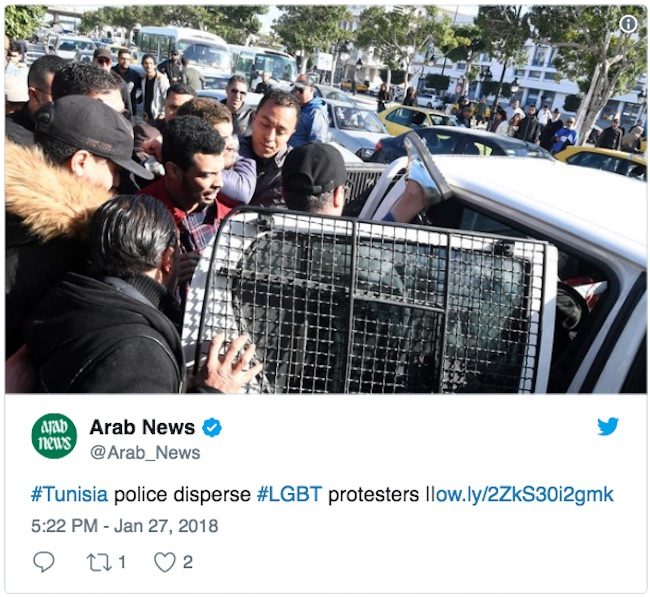
Previously, if an accused man refused to undergo the examination, it would be considered proof that he was gay, and could see him serve up to three years in jail.t
Now, if a man refuses, he will not be punished.
“These exams can no longer be imposed by force, physical or moral, or without the consent of the person concerned,” announced Human Rights Minister Mehdi Ben Gharbia.
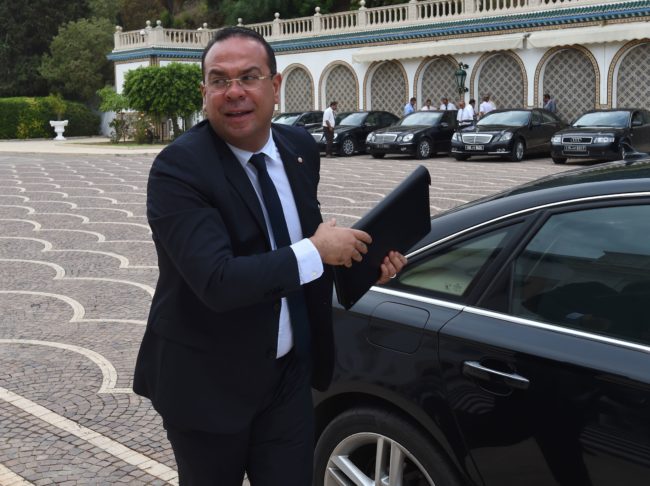
(FETHI BELAID/AFP/Getty Images)
The move, which has been praised by Amnesty International, has been called “a step in the right direction”.
“The commitments made by Tunisia today are a step in the right direction. But the government must swiftly implement these reforms if its promises of human rights progress are to be realised,” said Heba Morayef, North Africa Research Director at Amnesty International.
However, the impending “Repression of attacks against armed forces bill”, would grant security forces immunity from prosecution for unnecessary use of lethal force and criminalize criticism of police conduct, which would place LGBT people in jeopardy, according to the human rights charity.
“Tunisia’s promises to end impunity for the security forces will be meaningless if the authorities proceed with a bill that gives the security forces protection from prosecution for human rights violations,” says Morayef.
“The authorities must demonstrate they are committed to keeping the promises they have made today by scrapping this bill immediately.”
The Human Rights Minister also said that Tunisia is “committed to protecting the sexual minority from any form of stigmatization, discrimination, and violence,” but that “civil society must first be prepared” for homosexuality.
Late last year a LGBT radio station was established in Tunisia, despite opposition and threats made against its organisers.

